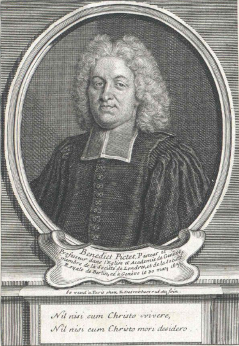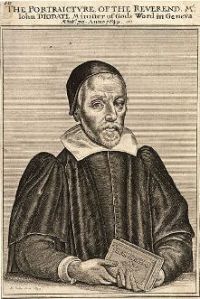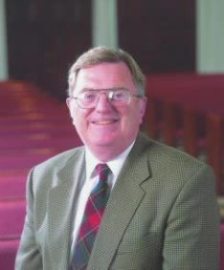
Bénédict Pictet (1655-1724), professor of theology at Geneva, discusses the perspicuity of Scripture in his Theologia Christiana, Book I, Chapter XIII:
Scripture not only perfectly contains all things necessary to salvation, but also contains them in such a clear and perspicuous way, that they may be discovered and known by any man whose eyes have not been plainly blinded by the god of this world.
This we may prove by various arguments. Firstly, since Scripture itself in many places bears testimony to its own perspicuity and clarity, both in respect to the law given to the ancient people [of God], and in respect to the Gospel, by which is comprehended the new covenant. This commandment, which I command thee this day, it is not hidden from thee, neither is it far off. It is not in heaven, that thou shouldest say, Who shall go up for us to heaven? Etc. But the word is very nigh unto thee, in thy mouth and in thy heart. (Deut. 30:11). Thy word is a lamp unto my feet, and a light unto my path (Ps. 119:105). We have most sure word of prophecy, whereunto ye do well that ye take heed, as unto a light that shineth in a dark place (2 Pet. 1:19). But if our gospel be hid, it is hid to them that are lost (2 Cor. 4:2-3).
Secondly, since Scripture would have been given in vain, if it were obscure; for Scripture had been given so that it may teach us, and so that it may be a rule of faith, as Paul observes: Whatsoever things were written aforetime were written for our learning (Rom. 15:4). But how could it teach us, if it surpassed or equalled to Delphic oracles of Apollo in obscurity? And how could its decisions, if they were obscure, be the rule of faith and morals?
Thirdly, either God was not able to reveal himself clearly to men, or he did would not. No one would say that he was not able to, and that he would not is most absurd. For who could believe that God our great Father was unwilling to reveal his will to his children, when this was necessary, so that men might obey it more easily?
A fourth argument is deduced from the examination of all things necessary for salvation, which have perspicuously been delivered unto us. For what is clearer than those things which are contained in the Decalogue, and which Christ reduces to two precepts (Matt. 22)? And who will deny that those dogmas which are read in the Apostles’ Creed, are clearly inculcated, explained, and taught throughout the whole of Scripture?
But here we must observe a few things. Firstly, we concede that some things are obscure and hard to understand, not only in Paul’s epistles, as Peter declares, but also in other books. God has so willed it that the diligence of the faithful should be stirred up and increased, that the pride of others should be subdued, and to remove any disdain which may arise from much easiness, for the human mind is accustomed to slighting and despising such things as are common and easily attainable; but we deny that such are the things which are necessary for salvation. But even if some of them are necessary, we maintain that they are explained in other parts [of Scripture], as we will say below: Scripture, as Gregory says (praef. in Jobum), holds forth in public what may nourish the weak, just as in private it stores up what may suspend the minds of the astute in wonder: it is, as it were, a river both shallow and deep, in which both a lamb may wade, and an elephant may swim. In Scripture, as in nature, there are three kinds of things: some are evident to all, some are known only by the learned, and others are not penetrable to even the learned themselves.
Secondly, we readily admit that there are mysteries in Scripture which surpass our comprehension, and which we shall not understand perfectly even in heaven; but at the same time we maintain that we are taught as much of these mysteries as are useful and necessary for us to know. For example, we do not comprehend the mystery of the trinity or of the incarnation of Christ, namely, how it could be that in in one essence there are three persons, and that God could assume unto himself a human nature. But even though we may be ignorant of the manner, yet we assert that the thing itself is clearly taught, which is all that is necessary to be known for salvation.
Thirdly, while we believe that the Scriptures are perspicuous in things necessary for salvation, yet we admit that these things are not taught clearly every passage, although we add that there is nothing in the obscurer places which is not found elsewhere where it is stated very plainly.
Fourthly, we observe that Scripture is perspicuous, not to all people whatsoever, and to those who read and hear it of whatsoever disposition they may be, but only to those who prove themselves teachable (provided they are in possession of their reason, and implore the light of divine grace), and who are not negligent and slothful, nor blinded by preconceived opinions, nor carried away by their passions, nor perverted by their wickedness, for these are all very great obstacles to the understanding of the Scriptures.
Fifthly, we hold that the Scripture of the Old Testament was less clear than that of the New, for it was clouded by various types, figures, and shadows, but nevertheless was more than clear enough on the things which the fathers [i.e. Old Testament believers] were not to be ignorant of.
Sixthly, we do not deny that we shall know divine things far more clearly in heaven; for there we shall no longer see God through a glass darkly, but face to face, as Scripture teaches. Still, those divine things are more than enough unfolded to us on earth, and therefore, even though it is through a glass, yet we behold the glory of the Lord with an open face, as Paul teaches (2 Cor. 3).
Seventhly, we defend such a perspicuity of Scripture as does not exclude either attention of mind or the necessary assistance of God (hence David prays that his eyes may be opened, so that he may see wondrous things out of the law), or the voice and ministry of the Church, or the reading of commentaries, but the only obscurity which we explode, is that which would drive the people away from the pure fountain of Scripture, and which forces them to have recourse to polluted streams of human tradition.









